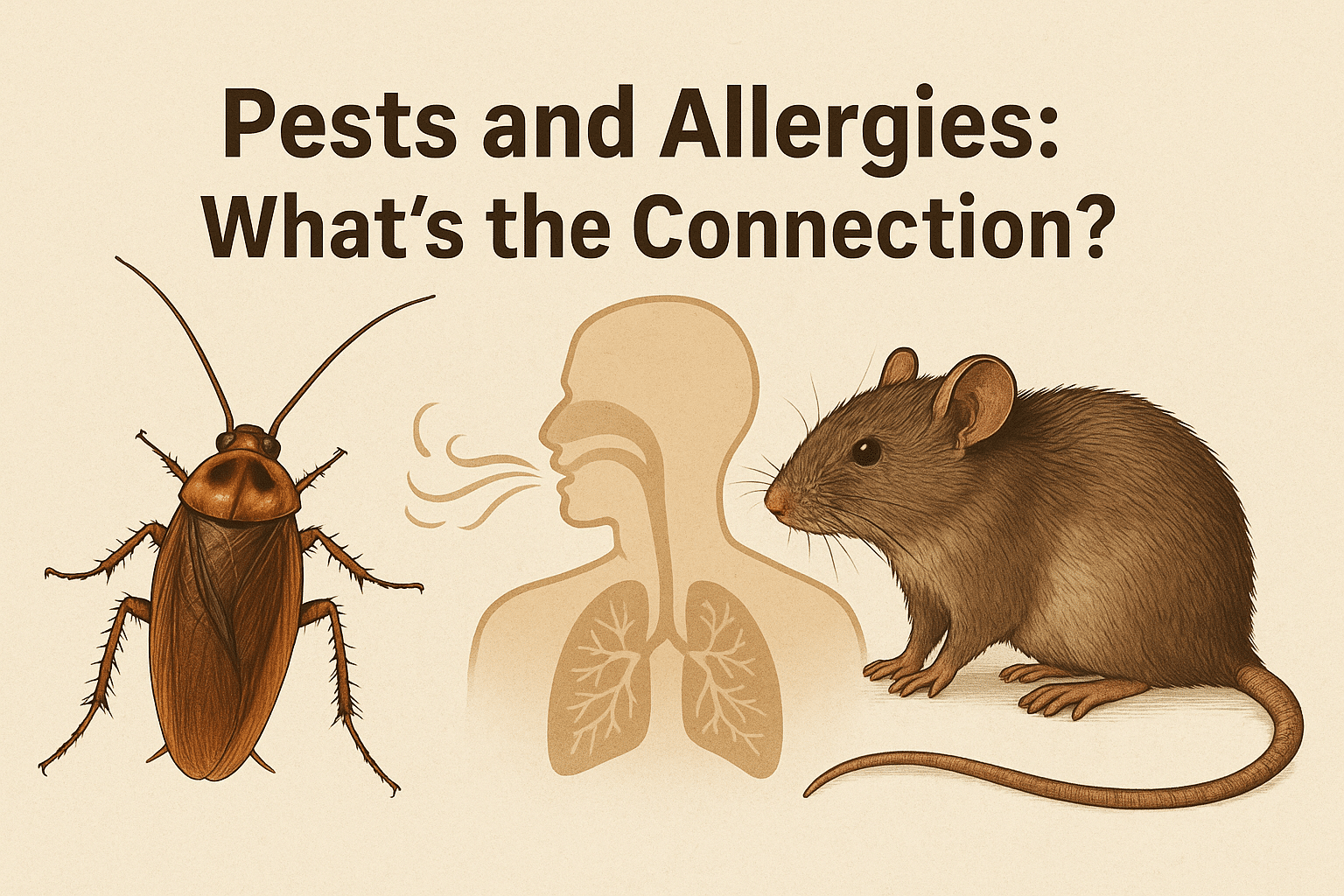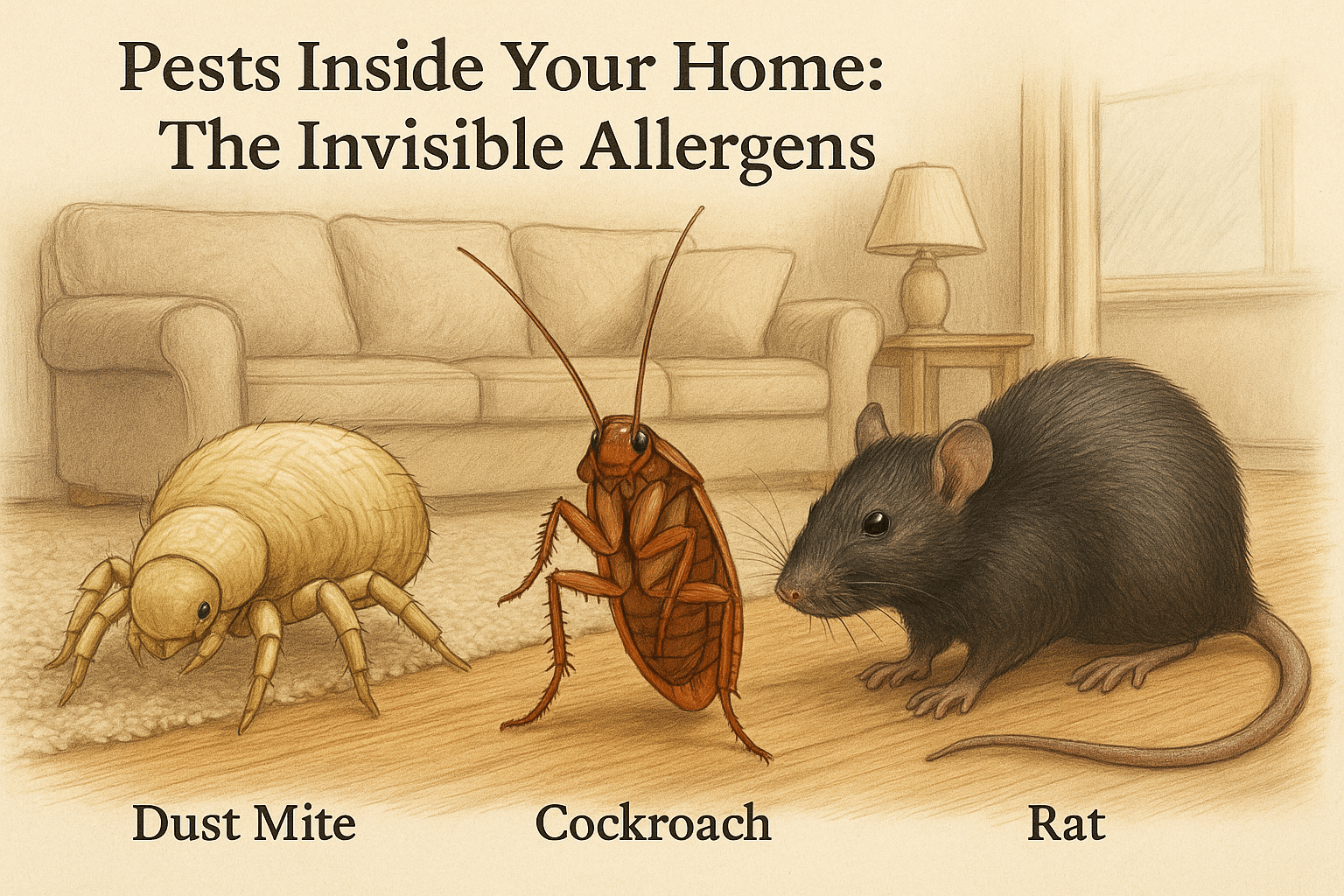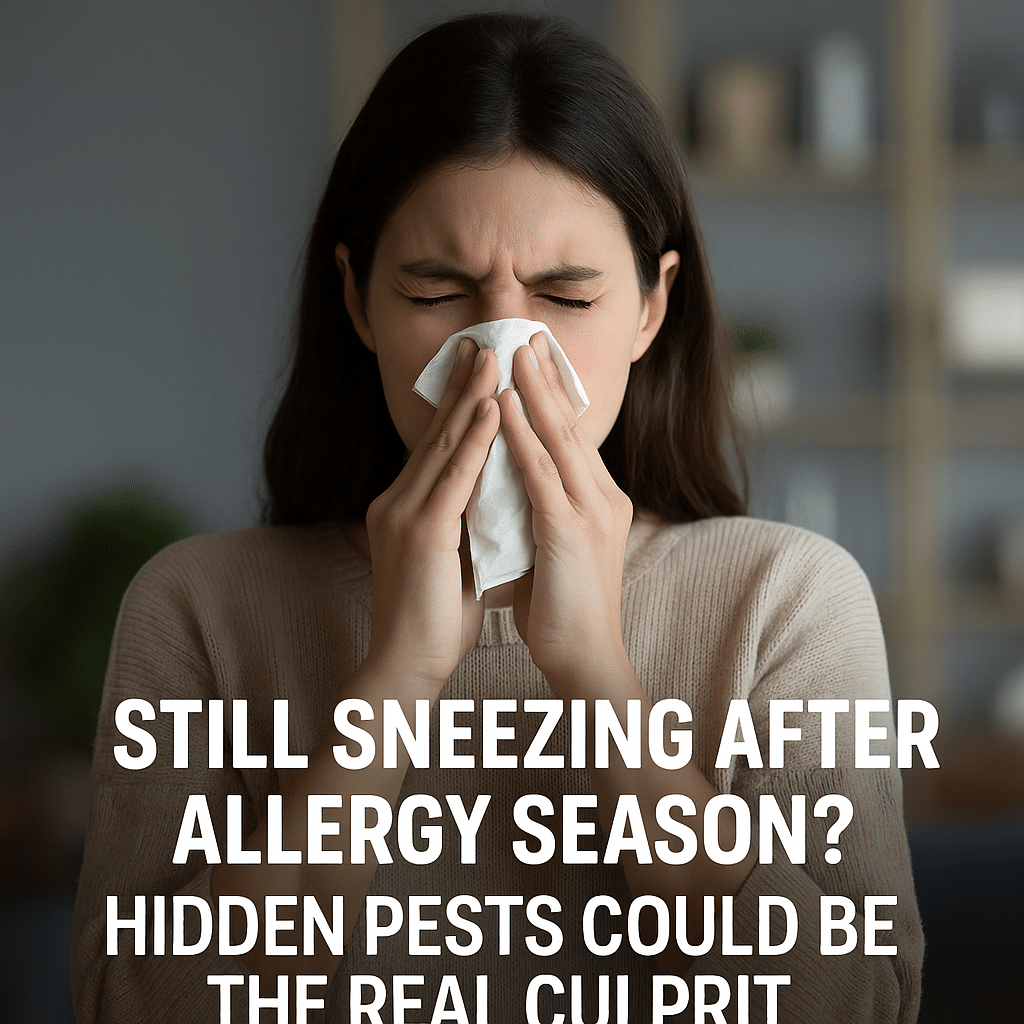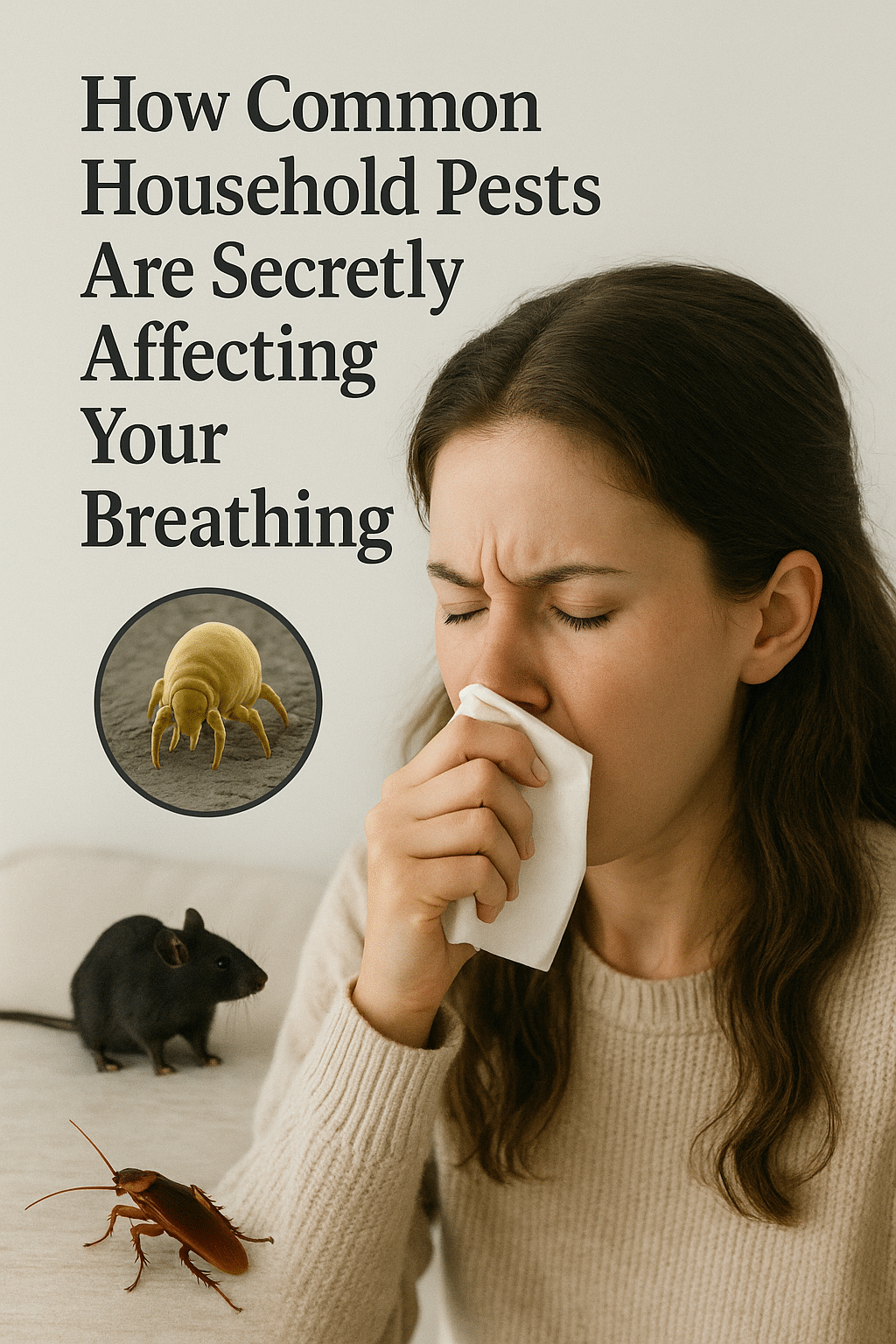
Uncovering the Truth: How Pests Are Worsening Your Allergy Symptoms
Pests and Allergies: What’s the Connection?
Have you ever wondered to yourself, why am I still having an allergic reaction? even after pollen season? More than likely, what you are having an allergic reaction to is not pollen at all; it is much more likely to be a pesky little pest causing your sniffles.
Believe it or not, pests such as cockroaches, rodents, and mites can and do cause allergies.
Surprising right? Let’s look more closely at the connection and what practical steps can be put into place to rid yourself of this real and hidden nuisance.
Pests Inside Your Home: The Invisible Allergens
1. Dust Mites
Dust mites are so tiny that you usually cannot see them. Dust mites are found in your blankets, carpets and your soft, comfy sitting objects like your couch. They feed on your dead skin cells, and, quite frankly, while they are non-biting, these tiny creatures can cause the most powerful allergens.
Those who are sensitive to dust mites often wake up sneezing or with a stuffy nose. Some will possibly develop chronic asthma symptoms. Dust mites are no laughing matter regarding your quality of life.
2. Roaches
Cockroaches are not just an unwanted guest at your home; they are also one of the common culprits for allergies. Roaches can easily spread bugs, skin, droppings, and saliva throughout your home. These contaminants can become airborne, causing them to enter your lungs.
When your body recognizes any airborne allergen, it treats it as a foreign invader and releases histamines through the immune system. Ever wonder why you cough, your eyes itch, and you sneeze? This response is a result of a systemic immune response to the allergen.
You may think cockroach allergens are uncommon. It’s time to reconsider! As we discussed previously, cockroaches can create high levels of allergies. They are among the biggest triggers of indoor allergies and the most reported indoor allergen by people in cities.
3. Rodents
Mice and rats spread a lot of bad bacteria in the world, but that is not all they will provide you. They produce a tremendous amount of potent allergens with their droppings, urine, and saliva. This makes rodents one of the most influential allergy triggers in your home. Rodents often going to go into walls, attics or basements and many times become totally unnoticed, but what they leave behind has great potential for contributing to outdoor pollution.
When rodent waste dries, the waste can become loose and aerosolized as fine particulate matter. If you breathe, it can cause similar respiratory distress as other allergy reactions, such as a combination of wheezing, coughing, and difficulty breathing.
The long-term exposure to allergens from rodent waste can pose the greatest health risk to children and adults with any lung condition, such as asthma and can severe a pre-existing lung challenge. Statistically speaking, with each sustained exposure to rodent allergens, a child’s risk of asthma development increases exponentially. Enough said!
How Pests Increase Allergies
Understanding how pests contribute to allergies is the best first step to solving the problem. The following describes how pests lead to allergies:
Always exposed to the allergens
Once the pest allergen goes airborne, it is lifted into the air, which you then breathe into your lungs. Allergic reactions can start in a very short time and with minimal exposure.
Chronic inflammation
If you’re always being exposed to the allergens, your respiratory system is always inflamed, which can lead to chronic inflammation. Chronic inflammation can expose young children to chronic asthma.
Cross-reaction of allergens
Sometimes, pest allergens will cross-react with other allergens like pollen and mold, which will further increase all the allergy symptoms. Seasonal allergies can feel like a year-round condition when cross-reaction occurs. By controlling pests, removing the allergen, and drying the wet location, you can expect a significant reduction in allergies for all of those pesky hazards.
Health Benefits Associated with a Pest-Free Zone
Taking control of pest allergens in your environment can help improve your health in three substantial ways:
· Fewer allergies: With fewer allergens, you’ll have fewer allergy symptoms from pest allergens.
· Less asthma risk: Pest allergens can increase asthma symptoms or reduce your ability to think straight. Either of these routes is especially concerning if you have children in your home because children are more susceptible.
· Sleep better at night: Many people are also allergic at night, which interferes with a healthy sleep cycle.
· Most enjoyable and safer overall: A pest-free space is a much better place for your overall well-being.
Taking Your Allergic Symptoms Seriously
Many people do not believe that indoor allergies are a problem. Ignoring indoor allergies can cause someone to develop a serious chronic condition over time, or one that takes a long time to go away. Pest allergens are the silent enemy to respiratory health.
If you’re allergic symptoms persist, seek medical help from an allergist. The allergy testing will tell you what allergy is causing you the problems, and you will be introduced to the process of elimination. If you have proper medical direction and address a level of pest infestation of cockroaches or dust mites, you will significantly improve your health.
Concluding Thoughts: Bringing it all Together
As easy as it might be to write insects and rats off as (other) things contributing to allergy-like symptoms, they are also instrumental in further complicating our allergy symptoms. Cockroaches, rodents and dust mites can cause serious health risks and a loss of comfort in our homes.
The good news, however, is that there are lifestyle changes you can undertake that will help counteract the pest-specific allergens. Routine cleaning and vacuuming, better food storage, reducing possible entry points, and maybe speaking to other health professionals as well, are all major interventions to reduce your pest-related allergens and, thus, your allergy burden.
Your comfort and health are paramount. By becoming aware of the links between health and pests, you can work toward a better home, a healthier you, and increased comfort in your home. Do you have pest problem? NO WORRIES! Contact Maximum pest control services (905) 582-5502. We got you covered!








